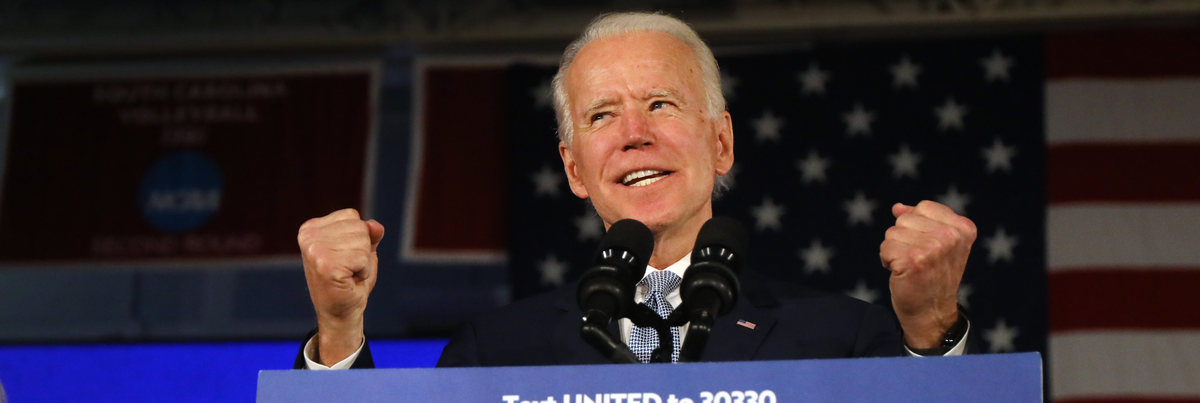For weeks, Vice President Joe Biden has held a consistent lead over President Donald Trump in polls among registered voters, including in Economist/YouGov Polls. Biden’s lead over Trump in the contest remains steady at nine points in this week’s poll.
Biden’s lead is propelled by overwhelming support from Black Americans and non-whites in general. The gender gap is enormous, he carries all income groups and loses to Trump only among senior citizens and those without any college education. Independents are evenly divided.
Biden could be gaining among those who favored Vermont Senator Bernie Sanders for the nomination. Only 4 percent of Sanders supporters say they will vote to re-elect the president, while 80 percent of them will support Biden. Most of the rest say they will vote for someone else.
What matters most to Biden’s campaign is that – at the moment – this is an election with an incumbent running for a second term, meaning it is an election that will be mostly about the incumbent. This incumbent is disadvantaged by a negative approval rating (among registered voters, 42 percent approve of how Trump is handling his job, while 57 percent disapprove.)
Trump’s voters are clearly with him. More than three in four say they are casting a vote for the president, not a vote against the former Democratic Vice President. Most of Biden’s voters also are making a choice based on their opinion of Trump. More than half of Biden’s voters, 57 percent, will be casting their ballot against Trump, the rest will be voting for Biden.
The presumed Democratic nominee has not only managed to hold on to 2016 Democratic voters but has a lead that comes from the support of those who voted neither for Democrat Hillary Clinton nor for President Trump four years ago. Those who did not vote for Clinton or Trump favor Biden (54%) over Trump (22%) by a wide margin.
The largest share of those who did not vote in 2016 were younger voters, who tripled the percentage of those 65 and older in the registered, but not voting in 2016 group. While these potential voters are all registered to vote, one can’t say for certain they will vote this year. But if they do, they would make a significant difference in the level of support for Biden.
Biden supporters are nearly as likely as Trump voters to be enthusiastic about voting this year, though they are not necessarily enthusiastic about their candidate, as Trump voters are about theirs. Two-thirds of Trump supporters are enthusiastic about him, compared with just 40 percent of Biden voters. But when asked how enthusiastic they are about voting this year, 43 percent of Biden voters describe themselves as very enthusiastic, which is only a little lower than the 49 percent of Trump voters who say they are very enthusiastic about casting a ballot this year.
Biden elicits positive responses, too. The differences in personal perceptions of Biden and Trump tend to work in Biden’s favor. Registered voters have slightly more favorable opinions of Biden than they do of the president and are 10 points more likely to like Biden “as a person.”
Voters are slightly less likely to say Biden does not care about people like them and are more likely to call him honest and trustworthy. This week, Biden matches the president when it comes to being seen as a strong leader, too. Somewhat more also say they have confidence in Biden’s ability to handle an international crisis than have confidence in the president’s ability to do that.
However, the president continues to dominate Biden when it comes to handling the economy. It has always been a strong point for him. Even with the economic problems caused by the coronavirus pandemic, President Trump still has a positive approval rating on handling the economy, but just barely.
About half (49%) of registered voters approve of his handling of the economy, while 47 percent disapprove. Still, voters look at him as better for the economy: a small plurality believes it will get better in a Trump second term, while a small plurality believes a Biden presidency will make the economy worse.
See the toplines and crosstabs from this week’s Economist/YouGov Poll
Methodology: The most recent Economist survey was conducted by YouGov using a nationally representative sample of 1,500 U.S. adult citizens interviewed online between July 5 - 7, 2020. The approximate margin of error is 3.2 percentage points for the overall sample. Samples are weighted according to gender, age, race, and education based on the American Community Survey, conducted by the US Bureau of the Census, as well as 2016 Presidential vote, registration status, geographic region, and news interest. Respondents were selected from YouGov’s opt-in panel to be representative of all US citizens.
Image: Getty









